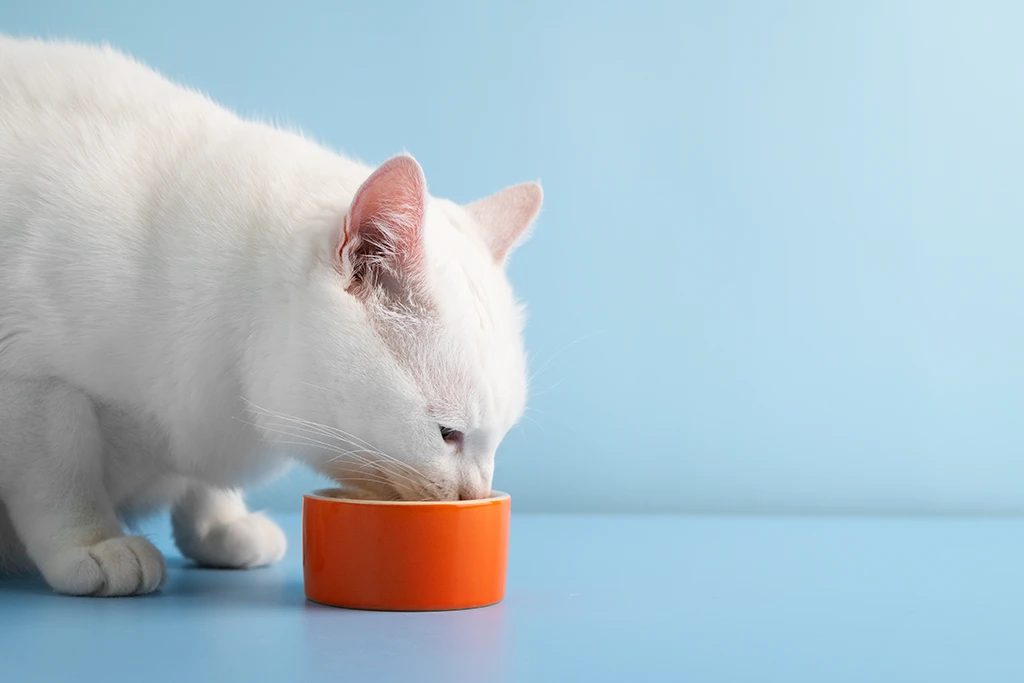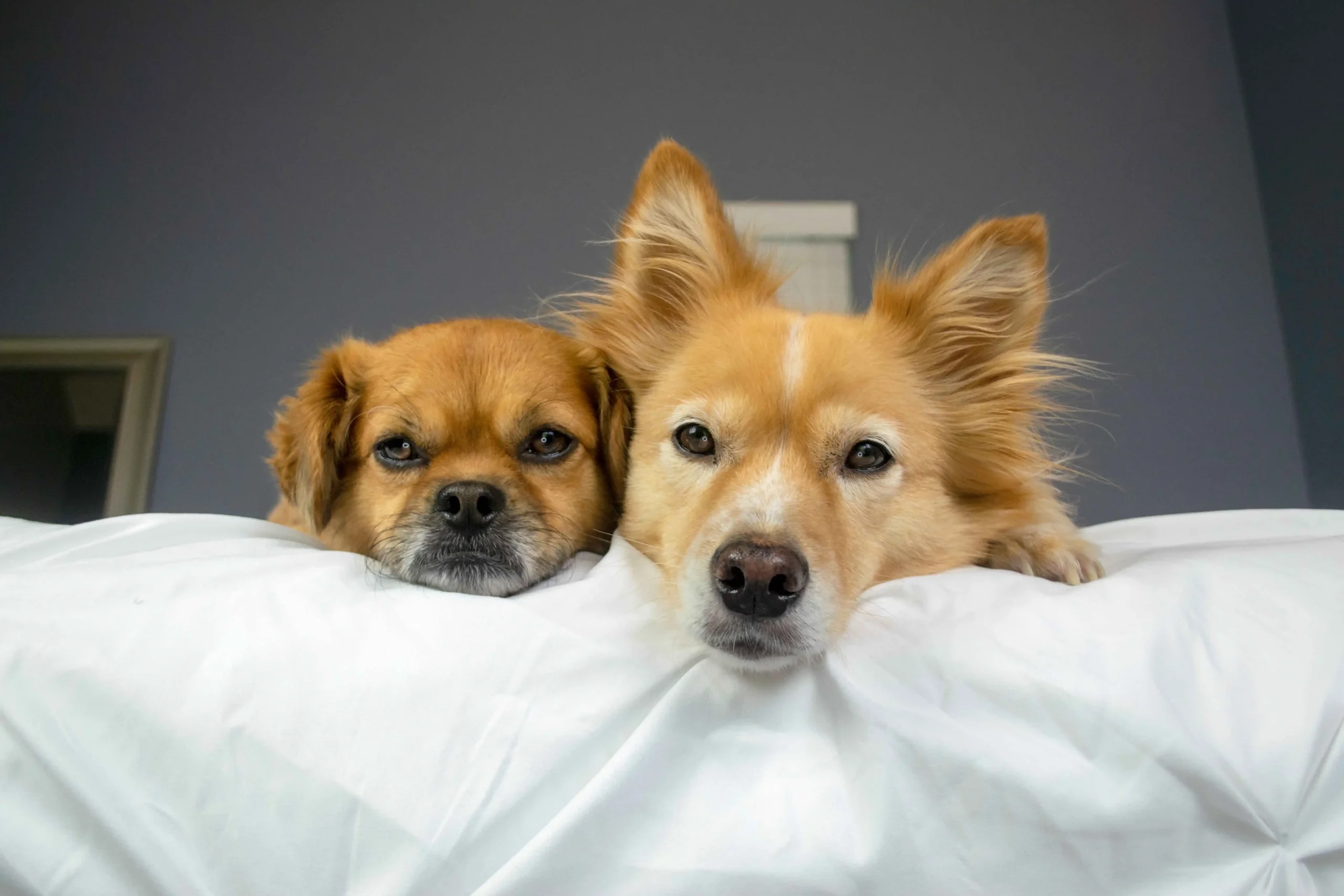

Does your furry companion suddenly turn into a bundle of nerves, trembling at the slightest sound or pacing anxiously when you’re away?
As a pet parent, witnessing a dog’s struggle with anxiety is heartbreaking. But what if a natural solution existed to help them find peace and tranquility? That’s where CBD comes in – a plant-based compound gaining popularity for its potential to soothe anxious minds and bring back those joyful tail wags. This article explores how this natural remedy is the key to a more peaceful life for a beloved pet.
Table of Contents
ToggleAnxiety in dogs isn’t just a fleeting moment of worry—it’s a persistent state of unease that casts a shadow over their daily lives. It’s that nagging feeling of fear or apprehension that just won’t let go.
Separation Anxiety: The mere thought of being apart from their beloved humans sends some dogs into a tailspin of panic.
Noise Phobias: Loud noises like fireworks, thunderstorms, or even vacuum cleaners trigger intense fear and anxiety in many dogs.
Changes in Routine: Even seemingly minor changes in their daily routine, like a new pet sitter or a change in feeding time, upset an anxious dog’s sense of security.

Anxiety manifests in various ways, so it’s important to be observant. Keep an eye out for these common signs:
Excessive Barking or Whining: Anxious dogs often vocalize their distress through persistent barking or whining.
Panting and Pacing: Restlessness and an inability to settle down are classic signs of anxiety.
Destructive Behavior: Chewing, digging, or scratching are ways for anxious dogs to release pent-up energy and frustration.
Accidents in the House: Even house-trained dogs have accidents when they’re feeling anxious.
CBD, short for cannabidiol, is a natural compound that hails from the hemp plant. Unlike its more notorious cousin THC, CBD won’t send a pup on a psychedelic trip. Instead, it works in a subtle yet powerful way, interacting with a dog’s endocannabinoid system (ECS).
Think of the ECS as a vast network of receptors sprinkled throughout a dog’s body. These receptors help maintain balance and regulate crucial functions like mood, sleep, and even how they perceive pain.
CBD acts like a gentle whisper to the ECS, encouraging it to function optimally. This subtle influence helps promote a sense of calm and well-being, which is a lifesaver for anxious dogs.
Beyond those heartwarming success stories shared by fellow pet parents, promising scientific research suggests that CBD offers genuine relief for anxious dogs.
Studies suggest that CBD helps alleviate anxiety by interacting with the brain’s serotonin system. Think of serotonin as a natural mood stabilizer. CBD helps furry friends find their inner zen by supporting healthy levels of this crucial neurotransmitter.
“CBD stimulates serotonin type 1A receptors in the brain, which may help alleviate anxiety and mood disorders,” according to the 2021 study by et al., titled “Cannabidiol as a Potential Treatment for Anxiety and Mood Disorders: Molecular Targets and Epigenetic Insights from Preclinical Research.”
While the science is fascinating, the real-life transformations truly capture the heart. Countless dog owners have witnessed their once-fearful pups blossom into confident, relaxed companions with the help of CBD. Imagine a dog calmly weathering a thunderstorm, confidently greeting new people at the park, or simply enjoying a peaceful nap without a care in the world. That’s the potential power of CBD for anxiety.
Dogs come in all shapes and sizes, and their needs often vary based on their breed, size, and unique characteristics. A Siberian Husky has way different personality than a rottweiler or a pug. That’s why dog anxiety is often triggered by various reasons defined by the breed specific characteristics. Here are some of the most common breeds and their characteristics and how to use CBD for specific breeds.
These breeds are more prone to separation anxiety and noise phobias. Due to their small size and low weight they often have a faster metabolism which might affect how quickly they absorb and metabolize CBD. And due to this reason, we have seen a lot of cases of CBD overdosing for small breeds.
Recommendations
Medium breeds often suffer from generalized anxiety or fear-based reactions (e.g., new environments or strangers). Then again, certain breeds, like Bulldogs, may have respiratory issues. So any drowsiness caused by CBD should be monitored.
Recommendations
Larger breeds are typically prone to joint pain and mobility issues, which often accompany anxiety in older dogs. They may require higher doses, making cost a concern for owners.
Recommendations
These big boys may develop anxiety due to their shorter lifespans and age-related health issues. However, their size and slower metabolism require careful dosing adjustments to avoid under-dosing or delayed effects.
Recommendations
If dogs on steroid was a thing, it would be these hyperactive dogs. Originally bred for hunting, sports and shepherd duty, they are always in need of physical and mental stimulation. Without sufficient mental and physical stimulation, they often develop anxiety. Anxiety symptoms may include destructive behaviors due to high energy levels.
Recommendations
Some breeds are genetically predisposed to medication sensitivities due to the MDR1 gene mutation, which could influence how they metabolize CBD.
Recommendations
These breeds are genetically prone to respiratory issues, which can be exacerbated by CBD-induced sedation or drowsiness.
Recommendations
Not all CBD products are the same. When it comes to a furry friend, choosing a high-quality, safe CBD product is paramount.
Opt for CBD derived from organically grown hemp. This ensures that a dog isn’t exposed to harmful pesticides or chemicals that compromise their health.
Reputable companies go the extra mile by having their products tested by independent labs. These tests verify the purity and potency of the CBD, ensuring it’s free from contaminants and contains the advertised amount of CBD. Look for a Certificate of Analysis (COA) readily available on the company’s website.
Avoid giving a dog human CBD products. Some contain ingredients that are unsafe for animals. Stick to products specifically formulated for pets to ensure the dog’s safety and well-being.
Just like with any medication, finding the right CBD dosage for a dog is essential. The general recommendation is to start with a low dose and gradually increase it within the safe range until the desired effects are observed. A common starting point is 0.20mg of CBD per pound of body weight, but always consult the pet’s veterinarian for personalized guidance.
CBD comes in various forms, including oils, treats, and capsules. Each has its pros and cons, so choose the one that best suits a dog’s preferences and owner’s lifestyle.
CBD is a valuable tool for managing anxiety in dogs, but it’s most effective when combined with other strategies. Consider incorporating:
Behavior training: Teach dogs coping mechanisms and positive reinforcement techniques.
Environmental enrichment: Provide plenty of mental and physical stimulation to reduce boredom and stress.
Veterinary guidance: Work with the pet’s attending veterinarian to develop a comprehensive anxiety management plan tailored to the dog’s individual needs.
While CBD is generally considered safe for dogs, some experience mild side effects like drowsiness or dry mouth. It’s crucial to monitor dogs closely when introducing CBD and consult the pet’s veterinarian if any adverse reactions are noticed.
Yes, CBD is generally safe for dogs. Choose reputable brands and follow dosage guidelines. Always talk to the pet’s vet first.
No, CBD won’t make a dog high. It’s different from THC, the part of marijuana that causes a high.
It depends. Some dogs feel better within minutes, while others take longer. Be patient and consistent.
There are oils, treats, and more. Each has pros and cons. Ask the pet’s vet for advice.
Some dogs get drowsy or have a dry mouth. These are usually mild. Talk to the pet’s vet if you’re worried.
Anxiety doesn’t have to rule a dog’s life. With the potential benefits of CBD and a holistic approach to anxiety management, paw-rents help their furry friend find peace and enjoy a happier, more fulfilling life. Remember, every dog is unique, so be patient, and observant, and work closely with a veterinarian to find the perfect balance for a beloved companion. Veterinarians guide owners to choose the right CBD product, determine the appropriate dosage, and monitor a pet’s progress.
However, not all veterinarians welcome the idea of using CBD on pets as research is still ongoing. In this case, consult holistic veterinarians for proper clinical assessment of the pet’s needs. Open discussions with them provide answers to questions, address any concerns, and ensure the pet’s CBD journey is a safe and successful one.

Table of Contents
Toggle